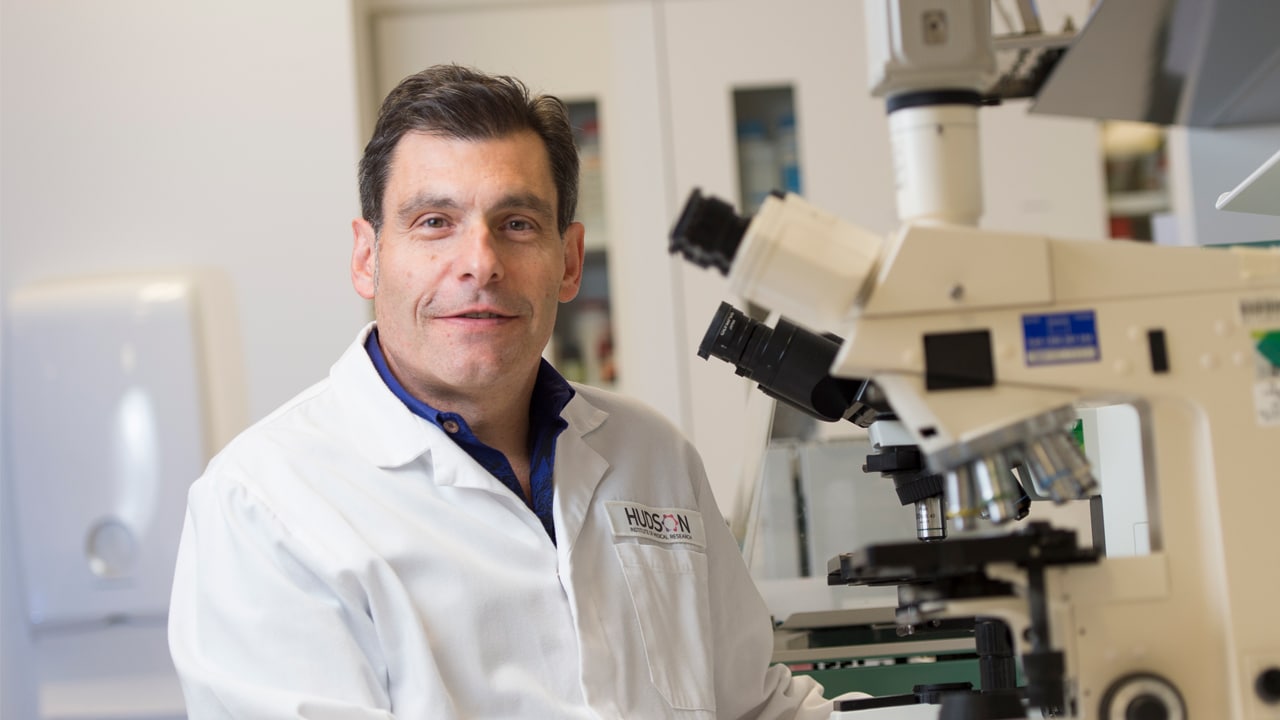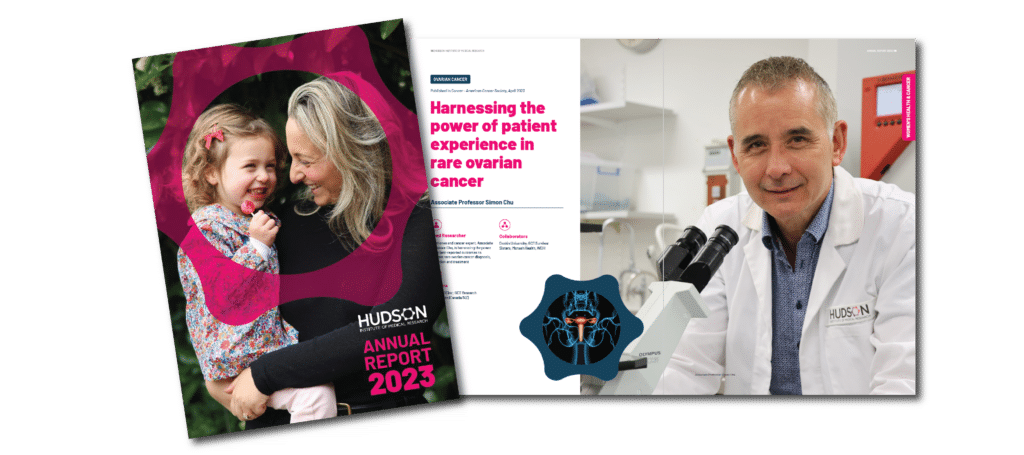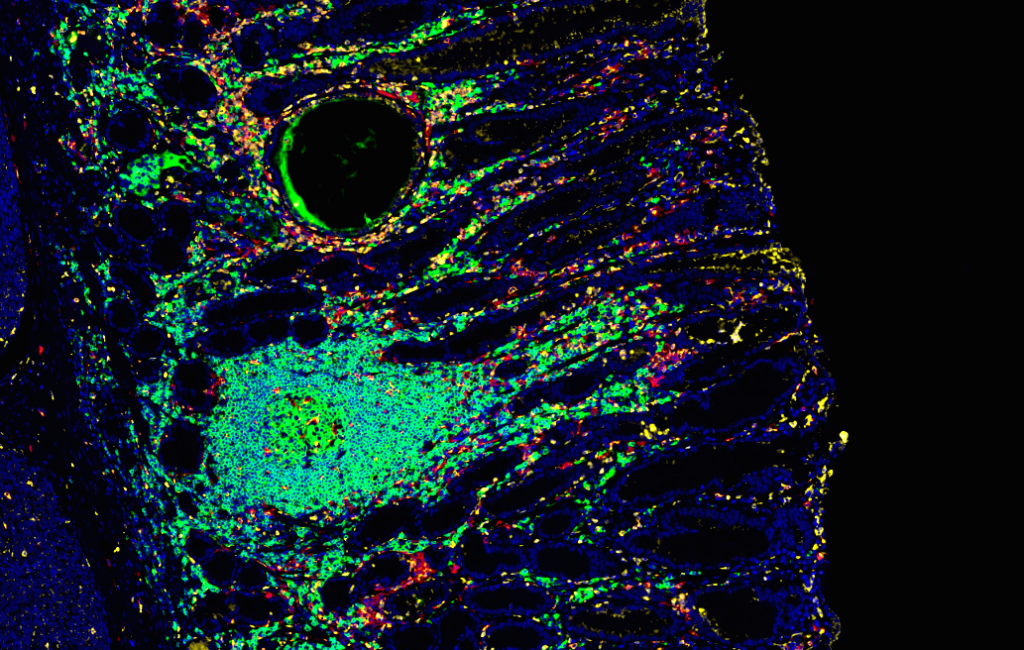Inflammation and stomach cancer: the H. pylori connection
By Rob Clancy, staff writer. Reviewed by Professor Richard Ferrero

Some science stories have entered into folklore, such as the researcher who infected himself with a particular bacterium (Helicobacter pylori) to prove that it, not stress, was the cause of stomach inflammation and ulcers.
H.Pylori and stomach cancer facts
- 20-50 per cent of people in Western countries have H. Pylori
- 80 per cent of people in developing countries have H. Pylori
- Stomach cancer is the fifth most common cancer worldwide
- 700,000 deaths annually worldwide due to stomach cancer
That research won the Western Australia-based gastroenterologist, Professor Barry Marshall, and his pathologist colleague, Dr Robin Warren, a Nobel Prize and boosted awareness of the damage Helicobacter pylori (H. pylori) causes to gut health.
H.pylori central to stomach cancer
In the years since, it has been firmly established that H. pylori infection can also play a central role in the development of stomach cancer.
That is where Hudson Institute’s Professor Richard Ferrero comes in. He has spent decades increasing the understanding of how inflammation can cause stomach cancer and the role of H. pylori in this process.
But with cases of H. pylori infection and stomach cancer decreasing in Western countries, and the availability of antibiotics that can treat the infection, he is sometimes asked, “Why bother studying the bacterium?”
“While fewer people are suffering from H. pylori infection and dying of stomach cancer, there is still a major gap in some populations. Many Indigenous peoples around the world, including in Australia, continue to suffer from H. pylori infection and, like others, have increasing rates of stomach cancer.
Throughout Asia, stomach cancer remains the second leading cause of death due to malignancy,” said Prof Ferrero.
Prof Ferrero current research focuses on two main areas:
1. Understanding bacterial ‘blebs
‘“The first concerns nano-sized ‘blebs’ (vesicles) that are released by bacteria and encounter cells in the body. We are studying how vesicles can alter the normal functions of these host cells and how they can be harnessed as vaccines to protect against stomach cancer caused by H. pylori.”
When Prof Ferrero first presented his work in this area at an international conference, a senior colleague asked with a smirk: “Do you really believe that these vesicles exist?”
Since then, research on bacterial extracellular vesicles has exploded, with the importance of vesicles in bacterial infection now accepted dogma in the field.
2. Characterising rare stomach lymphoma
“A second theme is focused on a rare type of lymphoma that develops in the stomach of some people with H. pylori infection. We are characterising the molecular pathways involved in the development of this lymphoma to be able to better predict those likely to develop the most severe forms of this cancer and develop new therapeutic targets,” Prof Ferrero said.
Prof Ferrero’s 2023 highlights included a publication in the prestigious journal, Nature Communications, and an NHMRC Ideas grant worth more than $1 million over four years to examine how ‘blebs’ alter host cell functions, leading to cancer. This research will describe a new mechanism by which bacteria can cause cancer.
Identifying targets to diagnose and treat H.pylori
Despite the fact that up to half of the world’s population is infected with H. pylori and that stomach cancer remains a major cause of death in many parts of the world, funding for this cancer is much lower than for many other types of malignancy.
It’s something that keeps the fire in Prof Ferrero’s belly burning.
“Through a greater understanding of H. pylori infection, we are identifying molecular targets that can be used for better diagnosis, new therapies and preventative treatments, such as vaccines, against the diseases caused by this bacterium,” Prof Ferrero said.

Read more stories in the
2023 Annual Report
Collaborators | Monash University; WEHI; Boston Children’s Hospital (USA); Cell Signaling Technology (USA); Duke-NUS Medical School (Singapore); Genome Institute of Singapore (Singapore); Karolinska Institute (Sweden); National Cancer Centre Singapore (Singapore); Singapore General Hospital (Singapore); Shanghai Jiao Tong University (China); SingHealth Duke-NUS Blood Cancer Centre (Singapore); University of Hohenheim (Germany); University of Toronto (Canada); Zhejiang University (China)
This research was supported by | ARC; Can Too Foundation; DAAD; German Academic Exchange Service; NHMRC; US Department of Defense
Journal | Nature Communications
Title | NOD1 mediates interleukin-18 processing in epithelial cells responding to Helicobacter pylori infection in mice
View publication | https://doi.org/10.1038/s41467-023-39487-1
In this article
About Hudson Institute
Hudson Institute’ s research programs deliver in three areas of medical need – inflammation, cancer, women’s and newborn health. More
Hudson News
Get the inside view on discoveries and patient stories
“Thank you Hudson Institute researchers. Your work brings such hope to all women with ovarian cancer knowing that potentially women in the future won't have to go through what we have!”






